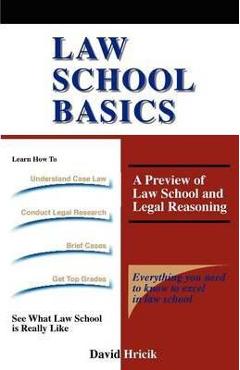Legal reasoning and argument. A handbook - Remus Titiriga

Detalii Legal reasoning and argument. A
Legal reasoning and argument. A - Disponibil la libris.ro
Pe YEO găsești Legal reasoning and argument. A de la Remus Titiriga, în categoria Limbi Straine.
Indiferent de nevoile tale, Legal reasoning and argument. A handbook - Remus Titiriga din categoria Limbi Straine îți poate aduce un echilibru perfect între calitate și preț, cu avantaje practice și moderne.
Preț: 44.4 Lei
Caracteristicile produsului Legal reasoning and argument. A
- Brand: Remus Titiriga
- Categoria: Limbi Straine
- Magazin: libris.ro
- Ultima actualizare: 27-10-2025 01:24:43
Comandă Legal reasoning and argument. A Online, Simplu și Rapid
Prin intermediul platformei YEO, poți comanda Legal reasoning and argument. A de la libris.ro rapid și în siguranță. Bucură-te de o experiență de cumpărături online optimizată și descoperă cele mai bune oferte actualizate constant.
Descriere magazin:
This book, the first of its kind, offers a comprehensive exploration of German legal theory and practice. Its thorough coverage, with a broader applicability to legal systems in general, is a reassuring resource for legal scholars, students, and professionals. The book is divided into seven main sections, serving as a clear roadmap for readers. It begins by explaining the fundamental process of applying legal norms, including their structure, how they are expanded and applied to specific cases, and the concept of subsumption, which involves fitting a particular case under a general legal rule. It then introduces the judicial syllogism as a critical tool in legal reasoning. The second section delves into the history of legal interpretation in Germany, tracing the evolution of different schools of thought from Savigny‘s canon of interpretation methods through various movements such as conceptual jurisprudence (Begriffsjurisprudenz), the School of Objective Interpretation, and the Free Law School, culminating in the doctrine of interests (Interessenjurisprudenz). The third part explores the debate between subjective and objective interpretation systems, presenting arguments for both sides. It also proposes a potential reconciliation of the two approaches, suggesting that a balanced approach that considers both the lawgiver‘s subjective intentions and the law‘s objective meaning could be the most effective. The following sections (IV, V, and VII) break down specific methods of interpretation: literal, subjective, and objective. Each of these is explored in detail, discussing their aims, structures, and applications in legal practice. The book provides examples and case studies to illustrate these concepts. Section VI focuses on the development of law, distinguishing between interpretation and development, and exploring the concept of gaps in the law. It presents various arguments and techniques for developing law and filling legal gaps, including analogies, restrictive interpretation, and teleological reduction. The book‘s practical approach, rich in examples, case studies, and annexes, is designed to equip readers with tools to apply the theoretical concepts in real-world legal scenarios, fostering a deep and confident understanding of the topic.

Produse asemănătoare

Law School Basics: A Preview of Law School and Legal Reasoning - David Hricik
![]() libris.ro
libris.ro
Actualizat in 28/10/2025
83.42 Lei

Learning Legal Skills and Reasoning. 5 New edition, Paperback/***
![]() elefant.ro
elefant.ro
Actualizat in 27/10/2025
339.99 Lei

Learning Legal Rules. A Students\' Guide to Legal Method and Reasoning, 11 Revised edition, Paperback/***
![]() elefant.ro
elefant.ro
Actualizat in 27/10/2025
317.99 Lei

Legal reasoning and argument. A handbook - Remus Titiriga
![]() libris.ro
libris.ro
Actualizat in 27/10/2025
44.4 Lei
Produse marca Remus Titiriga

Legal reasoning and argument. A handbook - Remus Titiriga
![]() libris.ro
libris.ro
Actualizat in 27/10/2025
44.4 Lei